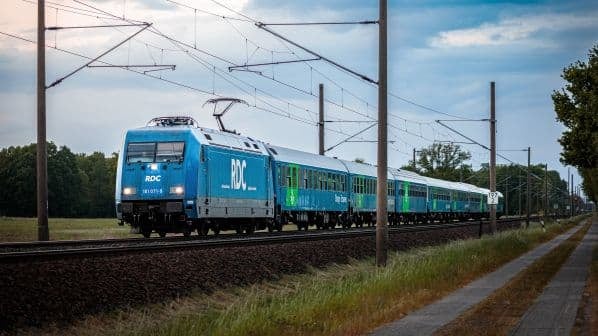Sweden’s state-owned company SJ will stop running night trains between Stockholm and Berlin on August 31 next year, one month after the Swedish government stopped supporting the service. SJ’s main rival on the road, Snälltåget, intends to fill the void.
“We welcome [SJ’s withdrawal]Because we need to compete under the same conditions; Otherwise, the business will not be sustainable in the long term for anyone,” Karl-Adam Holmberg, CEO of Snälltåget, told IRJ.
Despite its popularity among passengers, the SJ service has faced delays, difficulties in obtaining necessary approvals for rolling stock, and poor profitability since its launch in 2022, resulting in only a marginal profit even with subsidies.
“In general, making night trains profitable is a big challenge,” Christer Leitzel, business director at SJ, tells IRJ. “It’s a long way, and there are relatively few places on the trains.”
“One of the big challenges was finding enough coaches,” he continues. “There is a shortage in Europe where only older vehicles are available for hire.”
Furthermore, Denmark tightened its rules governing the use of rolling stock at the time SJ launched the route. While coaches that had previously operated in Denmark were automatically approved to operate, all individual coaches that had never operated in Denmark had to go through a six-month approval process even if the coach type was the same.
“Half of the trolley cars were approved, and the other half were not, even though they were exactly the same cars,” Leitzel says. “It took us two years before everything fell into place.”
Increase service levels
However, none of these issues appear to be of concern to Transdev-owned Snälltåget, which expects current service levels to increase as SJ withdraws, particularly during the low season from November to March.
“There are many lines in which we have intervened that state-owned companies did not believe in,” says Holmberg. “We have been running night trains since 2007, and we have received no support at all.”
“We believe in partnering with businesses and destinations. We’re more used to thinking in a purely commercial way about what’s possible, which SJ hasn’t had to do with its subsidized trains. You need to listen to and understand what customers want and how much it might cost them.”
Holmberg adds that customers are generally not willing to pay the unsubsidized cost of a sleeper berth, which is why Snälltåget currently only uses boxcars – which can accommodate a larger number of passengers – for its night trains between Sweden and Germany.
Rail Development Corporation (RDC) Germany – SJ’s current partner in Germany – also plans to continue operating the entire Berlin-Hamburg-Stockholm service on its own upon SJ’s withdrawal. Snälltåget welcomes competition “as long as it is held under the same conditions,” says Holmberg.
SJ, on the other hand, will focus on connecting Stockholm with Oslo and Copenhagen – the latter being the “gateway” to the rest of Europe, says Leitzel. Night trains to Germany are not expected to resume anytime soon.
“Not without subsidies,” Leitzel says.










